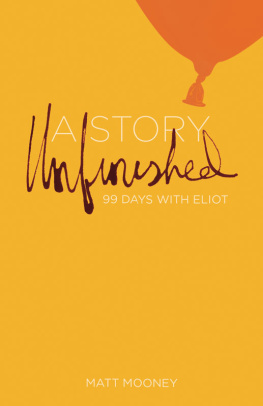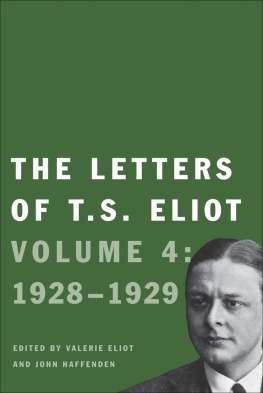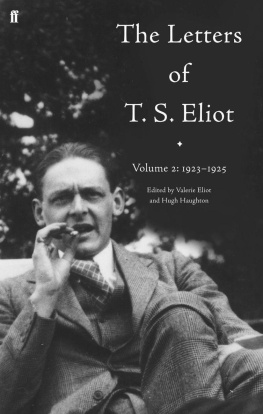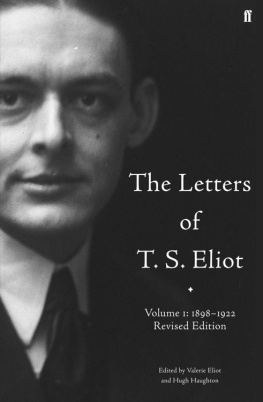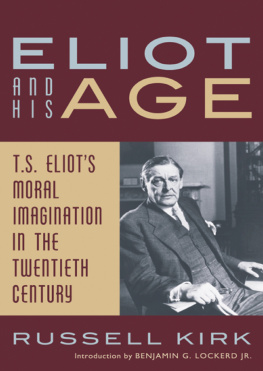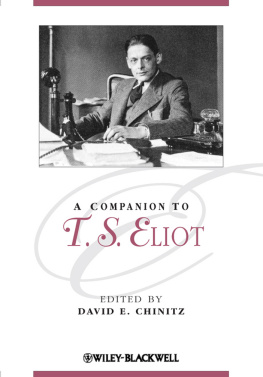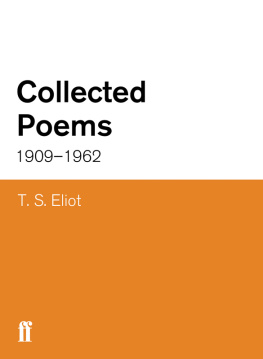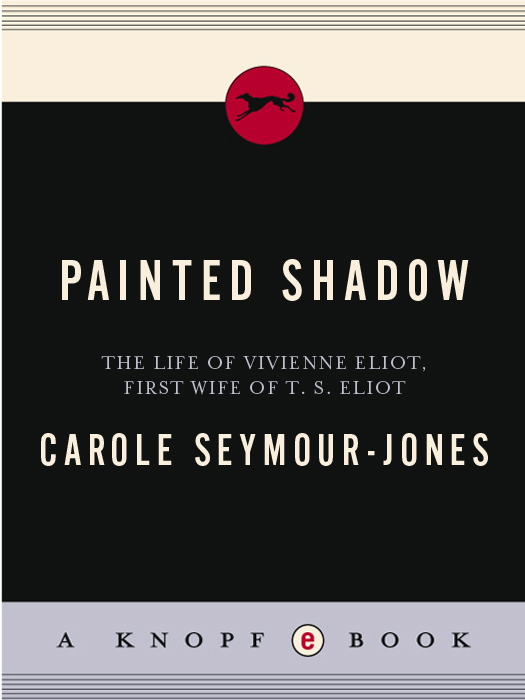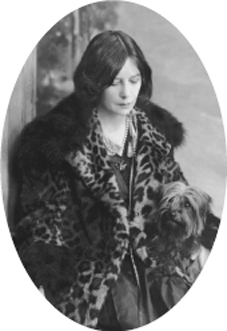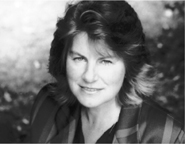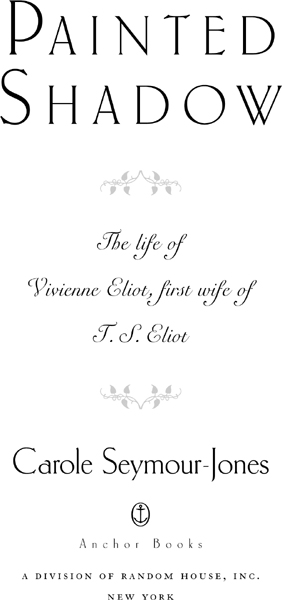Preface
P osterity will probably judge Vivienne harshly, has damned Vivienne in literary history as the madwoman in the attic, T. S. Eliots own Mrs. Rochester, as surely as the poets own portrait of a wife in The Family Reunion who is a restless shivering painted shadow.
Later memoirs and biographies have continued to be largely hostile towards Vivienne. Poor Tom Eliot married the landladys daughter, writes Peter Ackroyd. The myth of Eliot the martyr, a latter-day St. Thomas, had been born.
Such a version of history seemed to justify Viviennes committal in 1938. And on Eliots death in 1965, his status as the greatest poet of the twentieth century was confirmed by a plethora of tributes. Condolences came from the White House. A memorial service was held at Westminster Abbey. Over the years his reputation remained impregnable, his privacy impenetrable. Criticism of Eliots work was policed by the New Critics who directed readers to the poetry not the poet, and acted as guardians of the poets mysterious personal life. As scholars followed his impersonal theory of poetry into a literary cul-de-sac, Vivienne sank into deeper obscurity.
A few dissenting voices were raised. In 1963 Randall Jarrell had written prophetically in Fifty Years of American Poetry:
Wont the future say to us in helpless astonishment: But did you actually believe that all those things about objective correlations, Classicism, the tradition, applied to his poetry? Surely you must have seen that he was one of the most subjective and daemonic poets who ever lived, the victim and helpless beneficiary of his own inexorable compulsions, obsessions? From a psychoanalytical point of view he was by far and away the most interesting poet of your century.
Yet Eliot still remained elusive and any putative connection between the poets art and biography was off limits.
On her death in January 1947 Vivienne Haigh Eliot had bequeathed her papers, which included diaries, fictional sketches, poetry, correspondence and account books, to the Bodleian Library, Oxford, under the terms of her 1936 will. At first the Bodleian believed it held copyrights in the manuscripts,date the second wife was, in effect, able to silence the first. Legal opinion remains divided on the matter of ownership of the copyright.
When I began working on Viviennes papers I was astonished to encounter an artistic, energetic, gifted woman, very different from the stereotype who lingered in literary history. I was touched by Viviennes poignant love for Tom Eliot, her anguish when he left her, which leapt out from the pages of her diaries. In page after page of her notebooks lay irrefutable evidence of the close literary partnership she and Eliot shared, including drafts of her poems, prose sketches and short stories, which he published in the columns of Criterion. Although in the 1930s her voice became agitated and fearful, it seemed to me incredible that she should have been certified as insane.
Nor could I ignore the confession made by Viviennes brother, Maurice, shortly before his death in 1980, to Michael Hastings:
It was only when I saw Vivie in the asylum for the last time I realized I had done something very wrong She was as sane as I was What Tom and I did was wrong. And Mother. I did everything Tom told me to. Not ashamed to say so
It was a statement which hinted at darker motives for Viviennes committal, and suggested that it was she, no less than Tom, who was victim in the marriage.
The mystery intrigued me. But reading Viviennes passionate diaries had stirred another emotion apart from curiosity or sympathy: anger. I became determined to discover the truth that lay behind her incarceration, to rescue her from ignominy and disgrace, and to restore her to her rightful place in the historical record. For the next five years I would be hostage to Vivienne and her story.
It immediately became apparent that substantial obstacles lay ahead. A number of people told me that the task would prove impossible. It was a David against Goliath battle which five biographers had allegedly already attempted without success. No co-operation would be forthcoming from T. S. Eliots second wife, Mrs. Valerie Eliot, who was following the instructions given by her late husband in a letter to his previous literary ex The pessimists seemed justified when my then agent declined to have anything to do with the project. But it was too late to give up.


